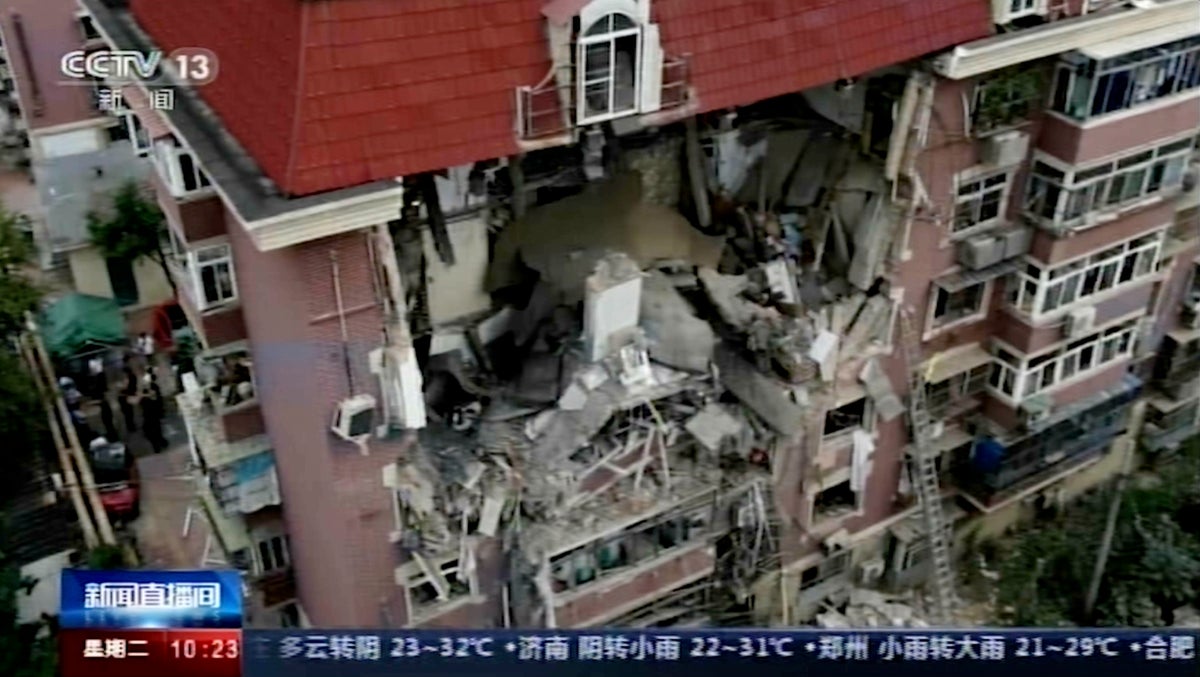
A gas explosion after a partial building collapse in the northern Chinese port city of Tianjin on Tuesday morning left three people missing and 11 injured.
The event remains under investigation, but it appears to point to the deterioration of infrastructure following more than three decades of breakneck economic growth.
That development has vastly boosted living standards while often skirting safety and environmental regulation.
Three floors of the six-story building collapsed. The official Xinhua News Agency reported the subsequent explosion occurred around 7:15 a.m.
Photos from the scene showed upper stories of the building caved in, but no obvious damage to neighboring units.
Tianjin lies roughly an hour by train from Beijing and has long been one of China’s most developed and international cities.
A massive 2015 explosion at a chemical warehouse in Tianjin killed 173 people, most of them firefighters and police officers. The chemicals were found to be falsely registered and stored, with local officials found complicit in turning a blind eye to the potential threat.
China is replacing decades-old infrastructure, with natural gas lines used for cooking, heat and power generation a particular concern.
A 2013 blast in the northeastern port of Qingdao killed 62 people when underground pipelines ripped open following a leak.
Smaller incidents have followed since, including explosions at a hotel in the northeastern city of Shenyang and a residential community in the central city of Shiyan that left a combined 28 people dead.
Building codes are also loosely enforced in rural areas and suburbs, with additional levels added to homes and businesses that lack the structural integrity to support them. In April, a block that included apartments and restaurants collapsed in the city of Changsha, killing 53 people.







